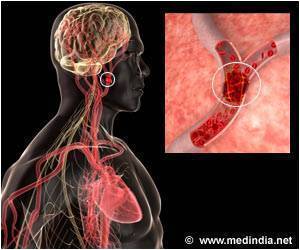The new method breaks the human brain’s protective layer called as the blood-brain barrier, to deliver chemotherapy drugs.

‘The new non-invasive method uses the phenomenon called as sonication to open temporarily the blood-brain barrier allows the chemotherapy drugs to reach the targeted area.
’





A type of brain tumor called the gliomas are difficult to treat as they can branch out. As it is impossible to remove the entire tumor, portions of gliomas are removed. The remaining portions of a glioma were treated with chemotherapy under strict limitations, as the majority of chemotherapy drugs cannot cross the blood-brain barrier. The new revolutionary method uses a phenomenon called “sonication” wherein sound frequencies that are too high for humans to hear are used to fragment cells. Usually sonication is performed on samples of cells in the lab. In the body, ultrasounds are used for imaging a fetus in the womb.
In the presence of ultrasounds, air bubbles rapidly compress and expand, vibrating in a way that loosens junctions between cells. In the new procedure, chemotherapy drug is administered to a patient’s blood stream without any means to reach a brain tumor.
Then, microscopic bubbles smaller than red blood cells that can pass seamlessly through the circulatory system are produced in a patient’s bloodstream. Pulses of ultrasound targeted on blood vessels in the brain interact with the microscopic bubbles to cause small openings in the blood-brain barrier. This allows the chemotherapy drugs to reach the tumor through the barrier’s targeted openings.
Dr Mainprize said, “We are encouraged that we were able to temporarily open this barrier in a patient to deliver chemotherapy directly to the brain tumor.”
Advertisement
The research paves the way for new treatment of other diseases that are hindered by the protection of the blood-brain barrier, including brain tumors, Alzheimer’s disease, and many psychiatric conditions.
Advertisement













